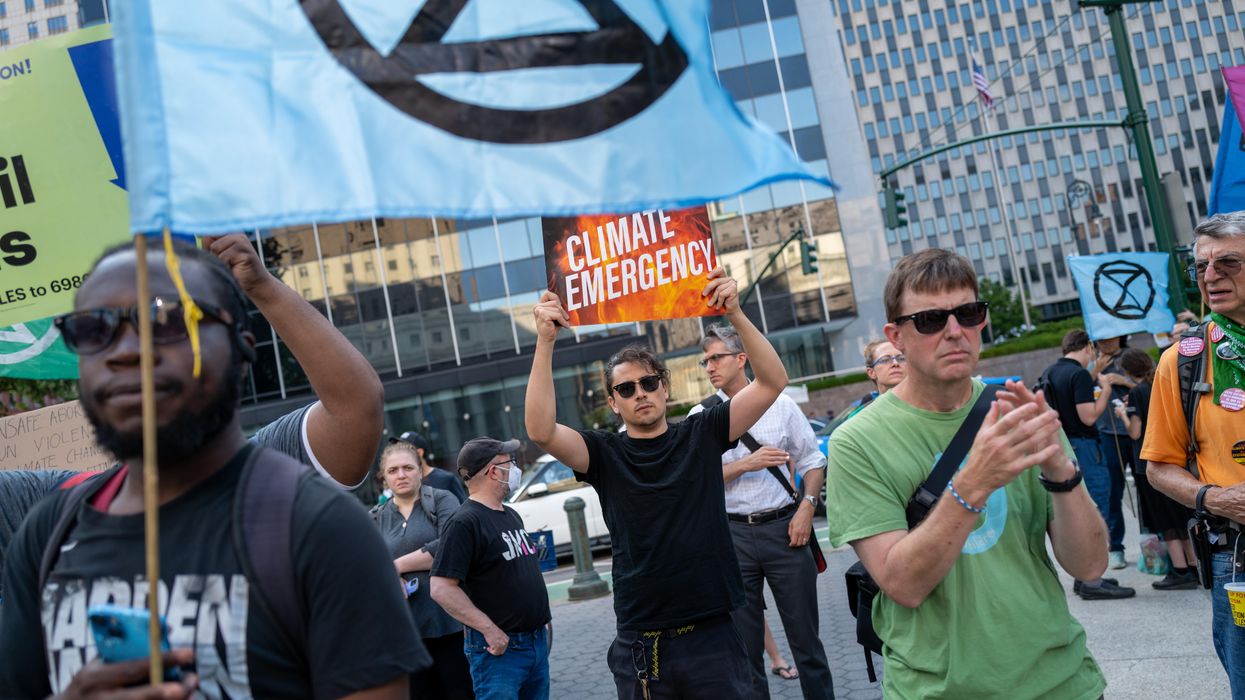Conte is co-chair of No Labels for the state of California.
My friends have it wrong. I recently reached out to many of them about an effort to combat the intentional efforts by “Big Lie” candidates to take over nonpartisan election positions in key states where, had they been in place, the 2020 election may have gone to Donald Trump. Many of them were “too busy” or responded that they only invest in specific issues like “climate crisis” or “reproductive rights” these days.
I responded: “I doubt it will go very well for climate action if Trump wins in 2024.” Their answer: crickets. And that, in a nutshell, is why we’re in trouble.
The problem isn’t whether you’re a Republican or a Democrat. It isn’t whether you disagree with your neighbors, or share the same beliefs. The real problem at hand is that we are all doubling down with aggressive tribalism on our policy silos, or even our political party, and funneling money and time and our deepest passions to them like a hoard of fiddlers on a hill while the pillars of democracy burn. Without unity and collective compromise, we risk being outwitted by those who seek to divide us. Make no mistake: This exact strategy of fanning the flames of minor differences between protesting forces has been used by dictators and authoritarians for centuries. We cannot and must not fall to it now.
We all need to step outside of our echo chamber long enough to notice that democratic norms are under threat. And lest you think it’s just Donald Trump and his Trumpians attacking the notion of the rule of law and legitimacy of democracy, we San Franciscans, engaging deeply in the redistricting process these last couple of months, saw an equally heinous political power-grab by the entrenched ultra-progressives. They behaved like Trump and his “Stop the Steal” cronies when they didn't like the outcome of representative democracy in the agreed-upon process (such as the new maps created by the redistricting task force).
We are at the point when working with the other party on comprise solutions to our nation’s most enduring challenges has regularly become cause for a slew of death threats. Whether it’s a secretary of state in Ohio, a U.S. senator in Maine, a House member in New Jersey or a redistricting task force member in San Francisco, good people are now afraid to work in government or become civic volunteers. This has to stop! We need to listen more, and threaten less. Each side in this battle of the extremes has taken a tiny nugget of truth and turned it into a full-blown conspiracy theory with life-or-death consequences. The real life-and-death threat is the partisan battle itself.
A new brand of politics, one that supports the rule of law and institutions that resurrect the fundamental principle of any successful democracy, is the only way to move forward. And bipartisanship is the only way to do that — even if that may be the ultra-blue compromising with the slightly less blue in a city like San Francisco. Compromise and slow change are the tenets of our government and it is through compromise that the big ideas of tomorrow are born. However, these ideas ought to be socialized and reformed into the center over time, ushered gently into broad acceptance as people see the inescapable validity of their goals and processes — like ending child labor or the right to clean water — the very shared goals we all adhere to, whether red, blue or independent.
Stop the single-issues advocacy, lobbying or direct-to-candidate funding. Funneling any money through either party is the problem, not the solution. Over the last two decades we’ve become lulled into believing that our party can single-handedly deliver on our wish list of policies, and inured to the fact that both parties continuously fail to deliver — not one comprehensive solution to gun safety, our immigration crisis, our strained health care system, our failure to educate our next generation effectively and efficiently, and so much more.
Give money to candidates who are actively working across the aisle to formulate legislation that has a snowball-in-hell’s chance of passing. You can find and support organizations that are actively working to restore bipartisanship and sustain democracy, like No Labels, Unite America, An America United, Mainstream Democrat PAC and others.
Democracy is not a given and needs to be actively nurtured to survive and thrive. Only once our political system has returned to civility and unfettered bipartisan debate about the goals we most often commonly share, with our only real differences on how best to solve them, can we go back to our relative complacency for a short time and focus again on our pet issues. We now know that we can’t afford to take our eye off of it for long without risking that autocrats, whether from the right or left, will try to sneak by and steal it from us. Engage in the change you hope to see, avoid starting sentences with “Republicans ..." or “Democrats ...” Ordinary people from either party are not monoliths and the moment they hear these accusations and demonizations, they shut down.
There are Republicans, like me, who support choice, climate and LGBTQ+ rights. And same goes for Democrats who may support gun rights or energy independence. We are out there — engage us and let’s move forward together.



















Trump & Hegseth gave Mark Kelly a huge 2028 gift